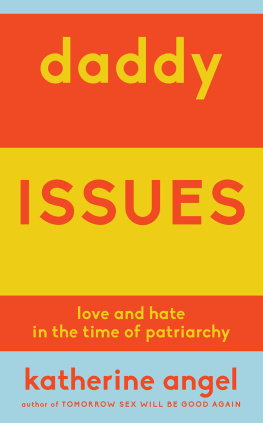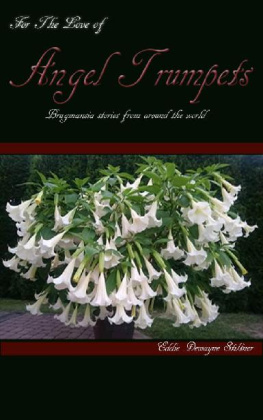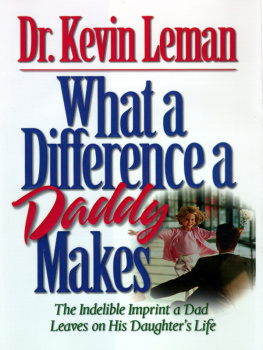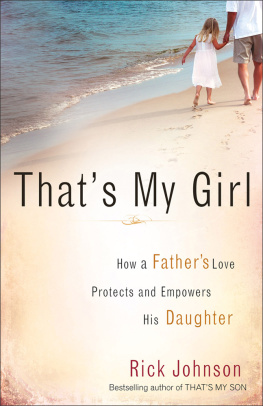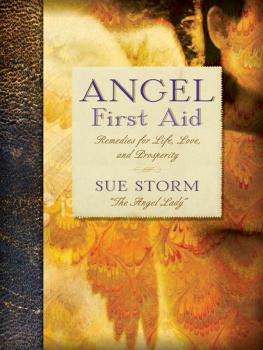Contents

Praise for Daddy Issues
A timely, necessary work from one of our most vital thinkers. Moving with ease across psychoanalysis, popular culture and literary criticism, weaponising the thought of Woolf, Winnicott and Solanas, Daddy Issues flips the familial script and takes aim at all our Daddies: domestic, cultural, patriarchal, even presidential. The result is a wincingly perceptive, deeply engaged book, one that takes us into the dark heart of a cultural fixation, then shows us, with deep care and empathy, the way back out.
Sam Byers, author of Perfidious Albion
This is a brave and brilliant book by one of the most insightful and articulate writers at work today. Katherine Angel is unafraid to look head on at the forgotten figure in feminisms critique of patriarchy: the father. All of us, daughters and sons, mothers and fathers, are enriched by confronting these libidinal energies, these daddy issues at the centre of all of our lives.
Lauren Elkin, author of Flneuse
In this probing and erudite essay, Katherine Angel asks Is it ever possible to get rid of the father, or is he forever internalised? Angel traces the many ways that culture and life reflect the needs of father figures over and above those of daughters, and how through both imagination and collective attention, we can begin to see and dismantle some of this power. A beautiful and necessary read.
Emilie Pine, author of Notes to Self
In this impressive and intelligent examination of the father figure, Angel expertly intersects the subject with feminism, mythology, Donald Winnicott, Brett Kavanaugh and more. Her unstinting eye and intellectual vigour make Daddy Issues an engaging interrogation. It feels utterly vital in the context of #MeToo and the political flux the world currently finds itself in.
Sinad Gleeson, author of Constellations: Reflections from Life
A brilliant investigation into the father figure in culture that is also a powerful intervention in the #MeToo debate. Through it all, I think, sounds a call to be present for each other, attentive and open, willing to work for each others full personhood.
Adam Foulds, author of The Quickening Maze
In Daddy Issues, Katherine Angel holds the image of the father in a steady, critical gaze, generating both questions and hesitations, and opening up a vital space in which to challenge how power works in the family.
David Hayden, author of Darker with the Lights On
Daddy Issues
Also by Katherine Angel
Unmastered: A Book on Desire, Most Diffi cult to Tell
Tomorrow Sex Will Be Good Again:
Women and Desire in the Age of Consent
Daddy Issues
Love and Hate
in the Time of Patriarchy
Katherine Angel

This edition published by Verso 2022
First published by Peninsula Press, London, 2019
Katherine A ngel 2019, 2022
All rights reserved
The moral rights of the author have been asserted
1 3 5 7 9 10 8 6 4 2
Verso
UK: 6 Meard Street, London W1F 0EG
US: 388 Altantic Avenue, Brooklyn, NY 11217
versobooks.com
Verso is the imprint of New Left Books
ISBN-13: 978-1-83976-437-0
ISBN-13: 978-1-83976-439-4 (US EBK)
Library of Congress Cataloging-in-Publication Data
A catalog record for this book is available
from the Library of Congress
Typeset by Hewer Text UK Ltd, Edinburgh
Printed and bound by CPI Group (UK) Ltd, Croydon, CR0 4YY
For Matthew
Nothing, my Lord.
Cordelia, King Lear
Contents
In the awful, wearying months in which Harvey Weinsteins ritualistic mistreatment of women was being recounted daily in the media, I found myself, like so many others, wondering and talking about the men in my life: ex-boyfriends, ex-stalkers, ex-harassers, exgropers. My friends and I looked back, fitfully, in agitation, at the things we had endured, the things we had kept silent about, and we looked around at the things that were bothering us now. Throughout the autumn and winter, we told and re-told stories, seeing them in a new light, gently mentioning things we knew about one anothers lives, murky memories, events we had not mentioned for years. We talked with a renewed anger and frankness, a renewed sense of permission in so doingand perhaps, too, a renewed sense of simplicity. We were questioning all the men in our lives, all the forms of patriarchal power. But we rarely spoke about our fathers.
Soon after the allegations against him were published, Weinsteins wife Georgina Chapman announced she was leaving him. I kept thinking: what about his children? You can, at least in principle, leave a husband, but you cant leave a father.
In her poem Sunday Night, Sharon Olds describes her father, during family meals in restaurants, putting
his hand up a waitresss
skirt if he couldhand, wrist,
forearm.
Olds notes that she never warned the young women.
Wooop! he would go, as if we were having
fun together.
She fantasises sticking a fork in his arm, hearing the squeak of muscle, feeling the skid on bone.
Sometimes
I imagine my way back into the skirts
of the women my father hurt, those bells of
twilight, those sacred tented woods.
I want to sweep, tidy, stack
whatever I can do, clean the stable
of my fathers mind.
Sharon Oldss project is reparative; she wants to heal the wounds her father has inflictedshe wants to use language to restore dignity and pleasure. Can words rewind time, undo harms? We might wish they could. But who are we when we make this attempt? Who are we writing as?
*
In her memoir Fierce Attachments, Vivian Gornick writes with horror of feeling consumed by her mother. She evokes familial intimacy as contamination, as infection:
My skin crawled with her Her influence clung, membrane-like, to my nostrils, my eyelids, my open mouth. I drew her into me with every breath I took. I drowsed in her etherizing atmosphere.
Here, closeness is interpenetration of a dangerous kind; intimacy is drugging, threatening to consciousness, wakefulness, alertness. Boundaries are broken, or never established, and merging ensues. We inhabit, become, and reproduce our parents. They are in us; we are made of them, for good and for ill.
Sharon Olds, like Gornick, has written plentifully from her own lifeabout her parents, her husband, her children, her divorceand has spent years navigating the agitated responses to such writing. Its generally assumed, and insisted upon, that writing from ones own life is the definition of exposure and of vulnerability. In some ways that is true, not least because the politics of speech and sexuality for women do make them vulnerable to judgement, to shaming, and to violence. But something else is sidelined by this insistence on the vulnerability of first-person writing, which is that writing isnt simply exposure: it is also protection. Writing is a spell; it conjures a person anew, and erects a protective wall. It can create a clear and ferocious distinction between self and other. It can enable the finding of a way to exist as oneself, and to relate to objects as oneself, and to have a self into which to retreat for relaxation.
This is how psychoanalyst Donald Winnicott described the experience of feeling realan experience dependent on positive early parenting, on good-enough mothering. (His language reflects the fact that it has usually been mothers who do the bulk of early parenting, though he underlined that the role of the good-enough mother can be fulfi lled by others.) For Winnicott, this good-enough experience involved the mothers absorption in the infant; her flexible management of the infants frustration and disappointment in her; and her ability to tolerate and survive the infants aggression towards her. She must be able both to mirror the child back to itself, and to withstand its destructive impulses; be able to let him pursue a ruthless relation to her, a benign exploitation of her.

